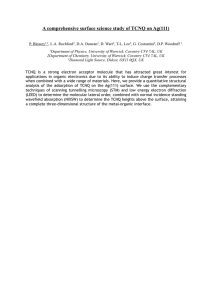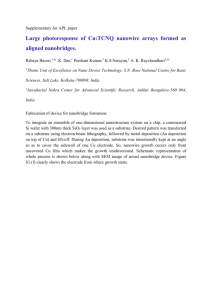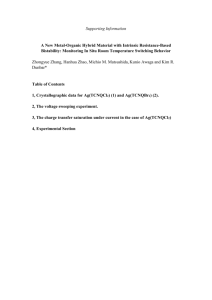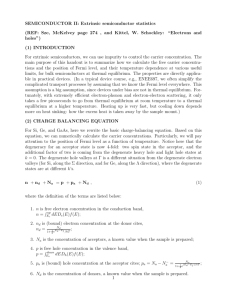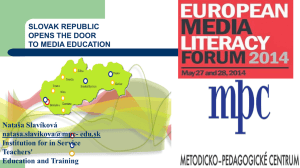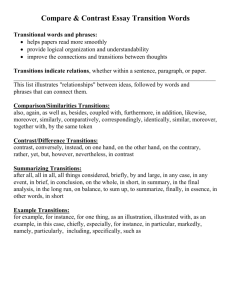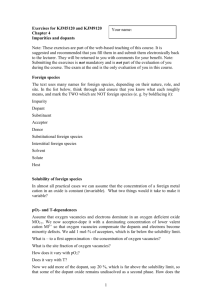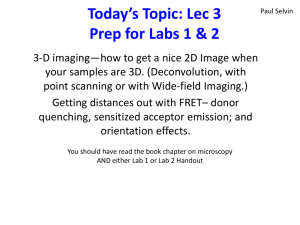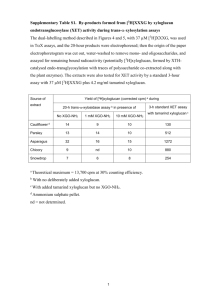CODECS 2013 Workshop San Lorenzo de el Escorial, Madrid, 18th
advertisement
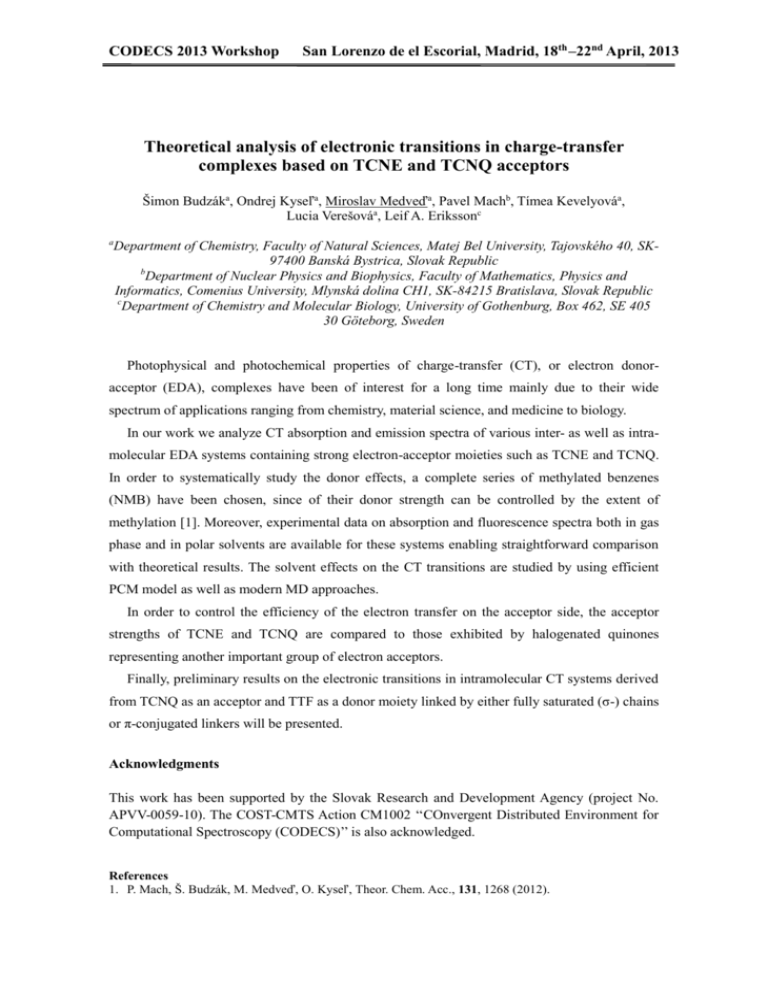
CODECS 2013 Workshop San Lorenzo de el Escorial, Madrid, 18th –22nd April, 2013 Theoretical analysis of electronic transitions in charge-transfer complexes based on TCNE and TCNQ acceptors Šimon Budzáka, Ondrej Kyseľa, Miroslav Medveďa, Pavel Machb, Tímea Kevelyováa, Lucia Verešováa, Leif A. Erikssonc a Department of Chemistry, Faculty of Natural Sciences, Matej Bel University, Tajovského 40, SK97400 Banská Bystrica, Slovak Republic b Department of Nuclear Physics and Biophysics, Faculty of Mathematics, Physics and Informatics, Comenius University, Mlynská dolina CH1, SK-84215 Bratislava, Slovak Republic c Department of Chemistry and Molecular Biology, University of Gothenburg, Box 462, SE 405 30 Göteborg, Sweden Photophysical and photochemical properties of charge-transfer (CT), or electron donoracceptor (EDA), complexes have been of interest for a long time mainly due to their wide spectrum of applications ranging from chemistry, material science, and medicine to biology. In our work we analyze CT absorption and emission spectra of various inter- as well as intramolecular EDA systems containing strong electron-acceptor moieties such as TCNE and TCNQ. In order to systematically study the donor effects, a complete series of methylated benzenes (NMB) have been chosen, since of their donor strength can be controlled by the extent of methylation [1]. Moreover, experimental data on absorption and fluorescence spectra both in gas phase and in polar solvents are available for these systems enabling straightforward comparison with theoretical results. The solvent effects on the CT transitions are studied by using efficient PCM model as well as modern MD approaches. In order to control the efficiency of the electron transfer on the acceptor side, the acceptor strengths of TCNE and TCNQ are compared to those exhibited by halogenated quinones representing another important group of electron acceptors. Finally, preliminary results on the electronic transitions in intramolecular CT systems derived from TCNQ as an acceptor and TTF as a donor moiety linked by either fully saturated (σ-) chains or π-conjugated linkers will be presented. Acknowledgments This work has been supported by the Slovak Research and Development Agency (project No. APVV-0059-10). The COST-CMTS Action CM1002 ‘‘COnvergent Distributed Environment for Computational Spectroscopy (CODECS)’’ is also acknowledged. References 1. P. Mach, Š. Budzák, M. Medveď, O. Kyseľ, Theor. Chem. Acc., 131, 1268 (2012).
